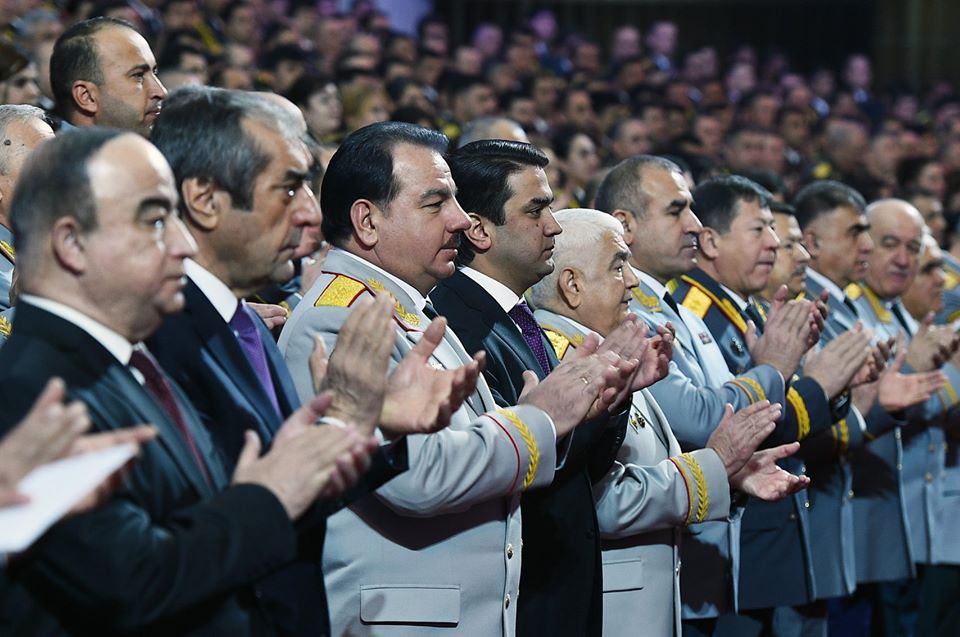President Emomali Rahmon has called on government officials to strictly observe the country’s law on universal military duty and military service.
Rahmon stated this during an address at a ceremonial meeting held on February 22 on the occasion of the 27th anniversary of the formation of the Tajik National Army, according to the Tajik president’s official website.
The president, in particular, noted that senior representatives of all ranks of civil service – from members of government and parliamentarians to heads of provinces, cities, districts and village communities (jamoats) – should be an example of strict compliance with the country’s Constitution and laws.
“Their children, first of all and without fail, must be ready to serve in the army,” said the head of state. “All persons should be equal before the law and all segments of the population are required to comply with its requirements.”
Emomali Rahmon ordered the Ministry of Defense and other power-wielding structures to take measures to find ways and methods to encourage soldiers after completion of army service.
According to him, such persons should have benefits when entering higher military schools inside the country and outside it and should have an opportunity to enter local colleges out of competition.
Taking into account the current difficult and unpredictable situation in the region and in the world, the president ordered the government to increase the mobilized reserve from 110,000 to 300,000 people, the president’s official website said.
Tajikistan’s National Army now consists of Air and Air Defense Forces, Land Forces and Mobile Forces. The Mobile Force of Tajik Army was founded in 2005 without increase in a total strength of the country’s armed forces. Air and Air-Defense Forces were also united in 2005. Tajikistan’s armed forces also include National Guard and Security Forces (internal and border troops).
Unlike the other former Soviet states of Central Asia, Tajikistan did not form armed forces based upon former Soviet units on its territory. Instead, the Russian Ministry of Defense took control of the Dushanbe-based 201st Motor Rifle Division; actually control simply shifted from the former district headquarters in Tashkent, which was in now-independent Uzbekistan, to Moscow.




